The results of this comprehensive meta-analysis a study of studies which may overturn current scepticism about the effect are presented at the ECNP congress after recent publication in a peer-reviewed journal. The idea that listening to Mozart may have beneficial effects on mental health arose from early findings in the 1990s.
Https Pdfs Semanticscholar Org D0db A40ebe54beea86ed185f627b69c84957ffed Pdf
Most studies focus on children and their reactions when listening.
Mozart effect study. The author of the original study has stressed that listening to Mozart has no effect on general intelligence. A meta-analysis of Mozart effect research showed an increase of 14 general IQ points between participants listening to Mozart or silence Chabris 1999. The Mozart Effect ME an enhancement of performance or change in neurophysiological activity associated with listening to Mozarts music was described for the first time by Rauscher et al.
On the contrary when peer-reviewed studies have reported an effect it has been of an immediate fleeting nature. No research has ever demonstrated that merely listening to Mozarts music can have a lasting impact on general intelligence or IQ. The review rekindles an.
The Mozart Effect refers to a popular scientific theory that listening to Mozarts compositions and other classical music will increase spatial intelligence. With regard to the popular meaning of the Mozart effect the answer is no. A quantitative EEG study The aim of this study is to investigate the influence of Mozarts music on brain activity through spectral analysis of the EEG in young healthy adults Adults in healthy elderly Elderly and in elderly with Mild Cognitive Impairment MCI.
Other studies were performed subsequently to check whether or not the Mozart Effect exists. The Mozart effect was first reported on in 1993 by scientists at the University of California Irvine who asked individuals to listen to Mozarts sonata for two pianos K448 for 10 minutes while others listened to either silence or relaxation audio designed to lower blood pressure. This study confirms an anti-epileptic effect of Mozart music on the EEG in children which is not present with control music.
In this post we will discuss. The phrase the Mozart effect was coined in 1991 but it is a study described two years later in the journal Nature that sparked real media and public interest about the idea that listening to. Hager Psychology Department Spring Hill College lhagershcedu.
However this IQ score included studies that did not strictly measure for spatial intelligence. CC By 20 A new study dispels the notion cherished among certain classes of Americans that music improves a childs intelligence. Theories to Explain the Mozart Effect The original 1993 study was developed out of a theory of brain organization developed by one of the researchers called the trion model which hypothesizes a natural symmetry to the.
The Mozart effect refers to the theory that listening to the music of Mozart may temporarily boost scores on one portion of an IQ test. No evidence of a difference in mean epileptic discharges was found between the baseline and the other three states or between listening to the Mozart music and control music. Studies done in 1999 also failed to replicate the Mozart effect despite using PFC tasks Steele et al 1999.
What is the Mozart Effect. A new systemic review has examined a dozen studies into the effect of Mozarts music on epilepsy finding the classical piano music may reduce the frequency of seizures. Studies like Chabris 1999 have disproven the Mozart effect.
One area of interest is the Mozart effect which is the idea that listening to classical music can increase overall cognitive performance. A Psychological Research Methods Case Authors Lisa D. In this case study students are given information regarding an advertisement claiming that listening to the classical music in the advertised CD set will enhance a persons cognitive skills and.
And this is what Rauscher wrote in the single page paper she subsequently published in the. A meta-analysis of studies that have replicated the original study shows that there is little evidence that listening to Mozart has any particular effect on spatial reasoning. A new study shows the much-vaunted Mozart Effect to be a myth with music study providing no boost to IQ among students.
Popular science versions of the theory make the claim that listening to Mozart makes you smarter or that early childhood exposure to classical music has a beneficial effect on mental development. Listen to the best classical albums for babies. The aim of this study is to investigate the influence of Mozarts music on brain activity through spectral analysis of the EEG in young healthy adults Adults in healthy elderly Elderly and in elderly with Mild Cognitive Impairment MCI.
In fact the cognitive gains produced by the so-called Mozart Effect lasted only about 10 to 15 minutes. EEG recording was performed at basal rest conditions and.
Show your little one how the lights go on when you flip the switch one way and off when you flip it in the opposite direction. Cause and Effect with Eggs This experiment can be useful for helping younger children build the vocabulary they need to understand cause and effect relationships while giving them strong visuals to.
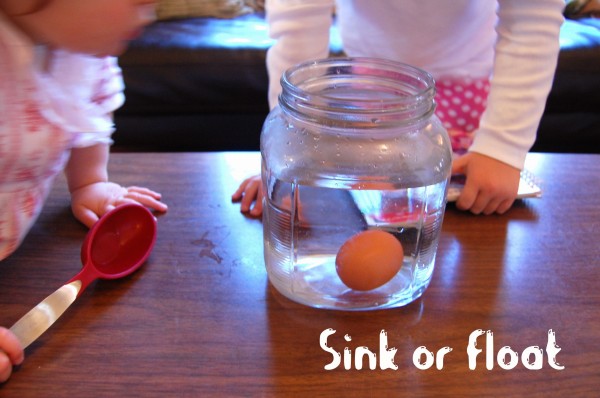 Preschool Science Experiments Inspiration Laboratories
Preschool Science Experiments Inspiration Laboratories
This resource is also a terrific introduction to exploring cause effect- or making things happen.
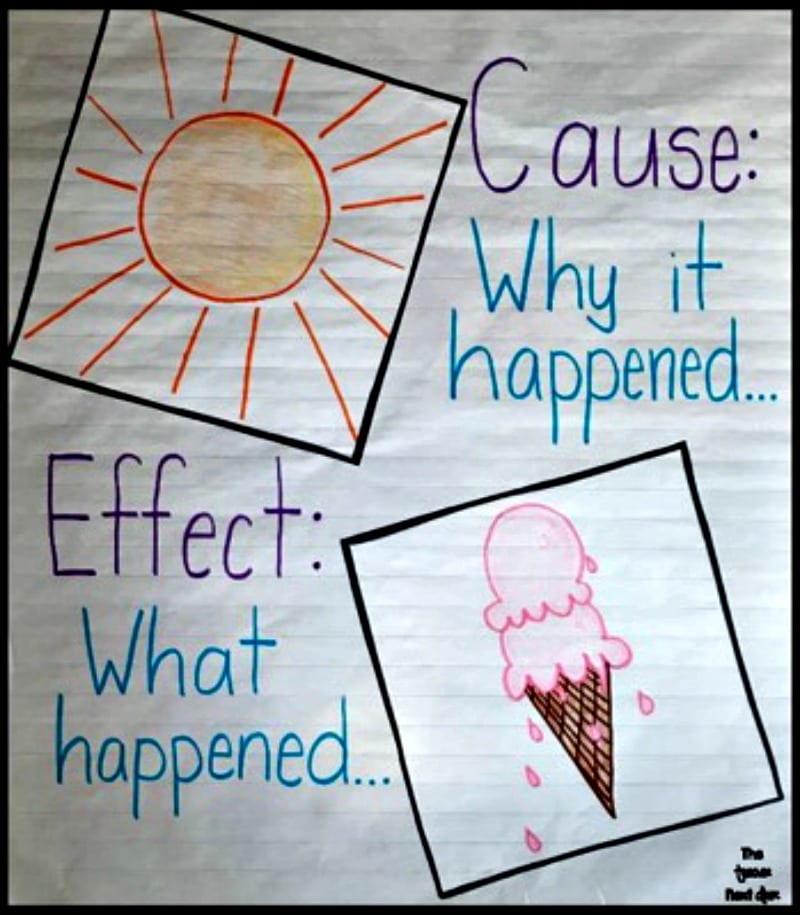
Cause and effect experiments for toddlers. Check out our super fun mini-experiments for babies and toddlers. Roll a ball back and forth to show that the harder you push the faster the ball will go. Teaching Kids About Cause and Effect Begin by reading a story together or doing a science experiment with a clear cause-effect outcome like the Dancing Raisin Experiment.
Then discuss the concept of cause and effect with your child. Name of the game. Introduce children to cause and effect by pounding the colored balls into the four holes and watch as they roll down the ramp make the colorful wheel spin and exit out the front hole into a trough.
Actions in our everyday lives may effect the outcomes we experience from day to day. Here are some pre-academic skills to build into play time with this kind of toys. As you or even better a student demonstrate these examples ask your kids the cause and the effect for each.
Make a ramp for toy cars and trucks to teach your child that the slope of the ramp makes the car go fast or slow. Carry your baby or toddler from room to room pausing when you reach a light switch. Picture books illustrating cause and effect gives students a visual representation of the connection between events and interpret what they are reading.
In many cases an effect can result from many causes and the exact nature of these relationships can be difficult to determineThe following are illustrative examples of cause and effect. Photo by Bo Bo Stocksy. Add a few drops of food coloring in two different colors to the jars.
Ask them if they have ever heard the phrase before and if so see if they can explain what it means. The Indoor Light Show. Pull toys teach your toddler that the toy will follow behind him.
Toddlers will have a great time letting the racing cars go down the ramps finding that the combination of the cars wheels and the angle of the ramp will always ensure the racing car makes its way down the bottom- a great first science experiment. Yep and babies get that. Set of 24 cardboard blocks come in 3 colors and 3 sizes and theyre all perfectly proportioned for easy building.
Teach cause and effect by playing on the floor with your toddler. These effects may be positive negative or in some instance could be neutral. This activity gets you experimenting with different surfaces and types of ramps.
It is cause and effect that makes literature entertaining. Largest measures 3 x 6 x 12 long. Activities to build pre-academic skills in toddlers with cause and effect toys.
Fizzy Ice is a unique science activity that combines our favorite summer item plus baking soda and vinegar. The cause makes events happen followed by the effects of those actions. Cause and Effect Scenarios.
Its a great practice activity that would work great on a projector using color to highlight the signal words and practice identifying them like the angry birds poster above mentions. Cause and effect is a type of relationship between events whereby a cause creates an effect. 2 Place two clear containers close together.
Our blocks are made of incredibly durable cardboardand their jumbo lightweight design allows even little builders to create towering structures. This is why we need to teach cause and effect to our students. Simple Sentences Cause and Effect Worksheet Here is a worksheet that asks students to identify the cause and the effect within simple sentences.
Cause and effect is how children learn to control and interact with their environment and understanding cause and effect helps to develop problem solving skills. This list wouldnt be complete without mentioning cookie cutter science or magic milk science either. Gather a few items to use as cause-and-effect examples ahead of time.
1 Take Celery or Napa Cabbage largest you can find and slice a stalk halfway up the middle. Your little one will love them. 4 Wait about 8 hours and observe the difference.
With that in mind I created this fun activity for my three year old son R to give him a visual understanding of how sound is created when he bangs a drum. 3 Add water to the jars to fill to about 15 inches deep. Seeing those luminous rainbow-hued bubbles emerge from a tiny little wand is always a treat for totsand just like whisking them up in water its a great lesson in cause and effect.
You could push a row of dominoes turn a light switch on pop a balloon roll a ball drop a Hot Wheel car down a ramp and so on. You can say do this and then execute an action with the toy you want your child to mimic eg. 4 Awesome Cause and Effect Activities for Toddlers.
Watch as an experiment using a balloon a straw and a piece of string teaches kids about cause and effect.
Psychological effects of listening to Mozarts music. In its simplest form the effect that classical music has on humans and other living things is called The Mozart Effect The music by Mozart is the focus point of this kind of research.
 Psych 205 Case Study 2 The Mozart Effect A Psychological Research Methods Case Part I Enhanced Performance Hey Bill What Are You Listening To Asked Course Hero
Psych 205 Case Study 2 The Mozart Effect A Psychological Research Methods Case Part I Enhanced Performance Hey Bill What Are You Listening To Asked Course Hero
It should be noted that the.
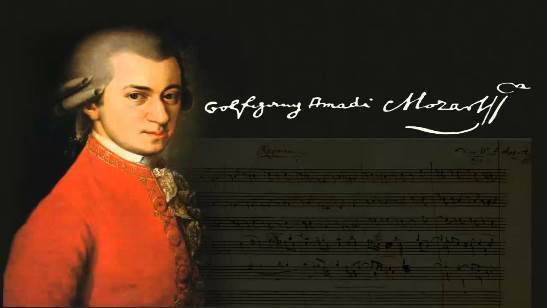
Mozart effect psychology. Students do not have to learn much about equipment or deep issues of research design. They argued in essence that the Mozart effect was merely an artifact of improved test performance and not improved intelligence. The first Mozart effect publication showed participants spatial intelligence scores improved by 8-9 points by far the largest increase reported in the literature.
When the students listened to the Mozart they performed better on the spatial reasoning test. Over a decade since the initial findings psychologists continue to debate the nature of the Mozart effect. Mind memory and the Mozart effect.
Daniel and Amy Starch Research Professor of Psychology listen attentively to a colleague. The Mozart effect refers to the theory that listening to the music of Mozart may temporarily boost scores on one portion of an IQ test. Mozart Effect in Popular Psychology.
It is hypothesized that by listening to this ensemble that individuals will remember information more easily. These psychologists suggested Mozart optimized testers mood before solving the spatial problems. The Mozart effect reported by Rauscher Shaw and Ky 1993 1995 indicates that spatial-temporal abilities are enhanced after listening to music composed by Mozart.
While the Mozart effect has been widely criticized by members of the psychology community the theory continues to attract subscribers. A disputed set of research results that indicate that listening to certain kinds of complex music may induce a short-lived fifteen minute improvement on the performance of certain kinds of mental tasks known as spatio-temporal reasoning. Two studies were conducted relating to the Mozart Effect.
The Mozart Effect is said to occur when individuals listen to the two piano sonata. Second a sequence of experiments appeared in rapid enough order that students can appreciate the process. The Mozart effect can refer to.
But it was a temporary improvement--the effect wore off after 15 minutes. A finding first reported in the journal Nature in 1993 that listening to compositions by Mozart increases scores on tests of spatial ability for a short while. Thus Mozart effect may be associated with any form of music that has or is perceived.
A meta-analysis of Mozart effect research showed an increase of 14 general IQ points between participants listening to Mozart or silence Chabris 1999. A possible explanation for the inexistence of the Mozart effect may be found in the fact that music elicits a variety of emotions and the way music excerpts are emotionally perceived by each individual. One of the most widely disseminated fad ideas in the history of psychology the Mozart effect is a term for the improvement in brain development that allegedly occurs in children when they are exposed to the music of Wolfgang Amadeus Mozart prior to the age of three.
Undoubtedly what makes his music so popular in psychological studies has a lot to do with the fact that he had a rather juvenile point of view and that it stirs positive feelings such as love joy excitement etc. Photo by Gretchen Ert They said the inaugural symposium on brain science would change our brains if we stayed awake and they were right. The Mozart effect is a theory in psychology that refers to research purporting that young children learn better when they listen to the music of famous classical musician Wolfgang Amadeus Mozart.
A term that has been applied to the controversial conclusions from various research groups that listening to Mozarts music may make a person more intelligent. In the original experiment college students were given various tests after experiencing each of the. This idea has become so widely accepted that.
First the effect is relatively simple to understand. Early studies indicated that when Mozart was played short-term improvements in some cognitive functions were experienced by children. The idea that listening to Mozart may have beneficial effects on mental health arose from early findings in the 1990s.
There have been several studies since but many involved small numbers of people or have been of variable quality leading to mixed evidence overall. The transient enhancement of performance on spatial tasks in standardized tests after exposure to the first movement allegro con spirito of the Mozart sonata for two pianos in D major KV 448 is referred to as the Mozart effect since its first observation by Rauscher Shaw and Ky 1993. Mozart effect exemplifies this process for two reasons.
Its sustained popularity is partly due no doubt to the sale of classical audio recordings marketed to parents with the promise that they will improve a childs intelligence. Popular science versions of the theory make the claim that listening to Mozart makes you smarter or that early childhood exposure to classical music has a. The effect if real has been attributed to short-term improvement in performing mental tasks that require spatial-temporal reasoning.
However people should not forget about those negative effects that video games have on students. When a child plays video games screen visuals with bright colors and quick movements send overstimulating messages to the nervous system.
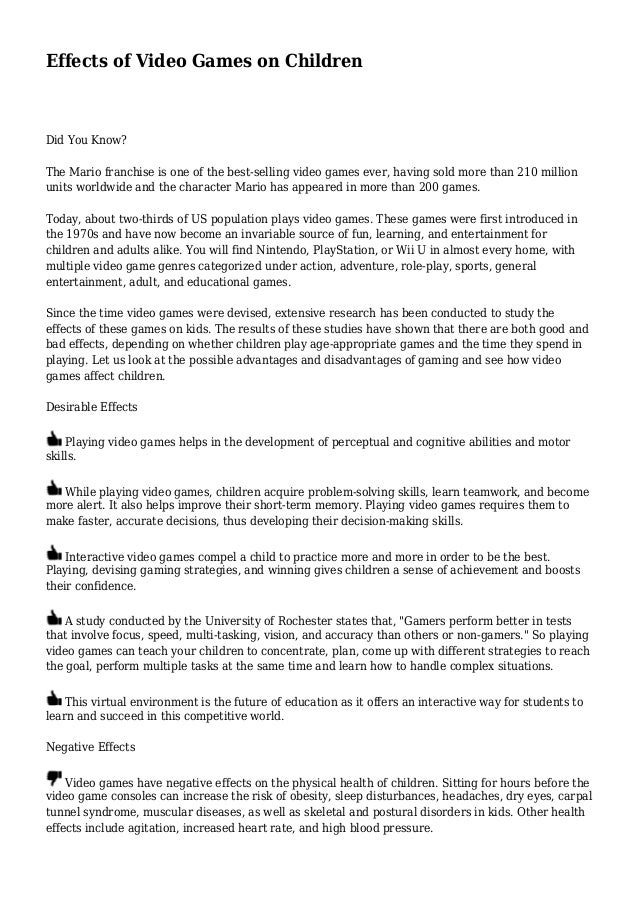 Effects Of Video Games On Children
Effects Of Video Games On Children
Video games that are more difficult than most will challenge a childs well-being allowing them to be more emotionally mature in the future.

Video games have a negative effect. Increase in the level of aggression is one of the most detrimental effects of playing a video game. It is important to remember that video games are not inherently evil. Research shows that exposure to violent video increases aggressive behavior 3 in children.
The one negative effect of video games established by the research is that exposure to violent video games is causally related to aggressive thoughts physiological arousal aggressive behavior and antisocial behavior. Over stimulation of the sensory system. Undoubtedly video games have more negative effects than some benefits it offers.
Noticeable changes to behavior. Negative Effects of Video Games Most of the bad effects of video games are blamed on the violence they contain. As the authors of one review summarizing 381 studies on gaming effects conclude violent video game effects should remain a societal concern 2 Time and again studies suggest this particular genre of games decreases empathy while increasing aggression among the children teenagers and young adults who play them.
All three are satisfied in video games. A new study suggests a dose-response relationship among playing violent video games and aggressive and hostile behavior with negative. One of the more painful negative effects of video games is shoulder pain.
Video games confine players in a digital frame and destroy their social and family life. Children who play violent video games tend to have increased aggressive thoughts. A 2018 study published in the Journal of Elbow and Shoulder Surgery found that playing video games for more than three hours per day was linked to shoulder pain in elite young male baseball players.
Its likely that video games have both positive on attention visual and motor skills and negative aspects risk of addiction and it is essential we embrace this complexity Palaus. Those who hold the view that video games do not have negative effects on children indicate that video games do not lead a child to violence but instead violent children are the ones who are interested in video games Anderson Gentile Buckley 2007. Violence social isolation wrong values escape from reality and building of the world of fantasy among others.
Playing video games for incredibly long hours tends to adversely affect the social behavior of an individual as well. Most of the negative effects of video games arise from excessive use and addiction. Ignoring or not prioritizing responsibilities or interests over game time.
Playing video games floods the pleasure center of the brain with dopamine says David Greenfield PhD founder of The Center for Internet and Technology Addiction and assistant clinical professor of psychiatry at the University of Connecticut School of Medicine. Video games have become ubiquitous and more and more kids are getting addicted to them. Some negative effects of videos games are.
Negative Effects of Violent Video Games May Build Over Time. There are several negative effects of video games which are majorly associated with its extended and unregulated use. Children who play more violent video games are more likely to have increased aggressive thoughts feelings and behaviors and decreased prosocial helping according to a scientific study Anderson Bushman 2001.
Violence in video games has been a pressing issue since the industry gained popularity. They can cause stress anxiety and even isolation if the addiction gets severe enough. Video games can negatively affect the brain memory and vision.
Those games are highly addictive and can spoil their life. Elicits violent behavior because of environmental influence and it is a source of addiction for its satisfaction of the brains reward systemVideo games have been a factor for social issues and psychological problems from the community down to the individual there are negative effects. Vast majority of the video games are violence packed and this has a tendency to desensitize children to the suffering of people in the real world scenario.
A Canadian study from McGill University shows that human-computer interactions such as playing video games can have a negative impact on the brain. The Negative Impact of Videogames on Children. It is to be understood that video games have been found out to be affecting players psychologically it can cause impaired brain function and development because of exposure and weaker nerve connections.
Social isolation can be an immediate consequence of continuous and ceaseless gaming. The game content and the amount of play can bring in the negative effects. Here is a list of such negative effects.
What are the negative effects of video games. The negative effects of video games include effects on our mind body relationships job performance and more. Excessive gaming can develop certain traits which may have negative effects on an individuals all-round development.
Exposure to the music of Mozart daily not only significantly reduces seizure frequency but it also reduces abnormal brain activity associated with epilepsy. The Mozart effect is a well known term for the concept that listening to music and in particular Mozart music can help to improve concentration and focus and generally improve your productivity.
 Value Of Classical Music More Important Than The Mozart Effect Kansas Public Radio
Value Of Classical Music More Important Than The Mozart Effect Kansas Public Radio
The Mozart effect refers to the theory that listening to the music of Mozart may temporarily boost scores on one portion of an IQ test.
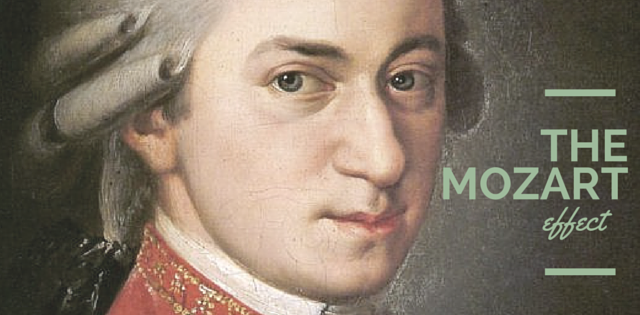
The mozart effect. Rather it proposes that Mozarts music is simply one example of a stimulus that can change how people feel which in turn influences how they perform on tests of cognitive abilities. Written and developed by Don Campbell The Mozart Effect series of books and recordings uses music as a powerful catalyst for healing creativity and development. Popular science versions of the theory make the claim that listening to Mozart makes you smarter or that early childhood exposure to classical music has a beneficial effect on mental development.
Listen to the best classical albums for babies. The Mozart Effect ME an enhancement of performance or change in neurophysiological activity associated with listening to Mozarts music was described for the first time by Rauscher et al. The arousal and mood hypothesis offers an explanation of the Mozart effect that has nothing to do with Mozart or with spatial abilities.
In the scientific community the term refers to something more specific. In fact the cognitive gains produced by the so-called Mozart Effect lasted only about 10 to 15 minutes. This theory grew out of 1993 research findings which showed that listening to Mozart temporarily strengthened spatial logic among a group of college students.
The contention that people enjoy brief 10-15 minute improvements in visual-spatial reasoning after listening to short excerpts of Mozarts music. Other studies were performed subsequently to check whether or not the Mozart Effect exists. The meta-analysis indicates that a period of listening to Mozart can give an average reduction in epileptic seizures ranging from between 31 to 66 but this varies from person to person and.
The Mozart Effect is an inclusive term signifying the transformational powers of music in health education and wellbeing. The term Mozart effect refers to the widely contested theory that exposure to the music of composer Wolfgang Amadeus Mozart particularly from an early age can improve ones general intelligence. A book called The Mozart Effect by Don Campbell has condensed the worlds research on all the beneficial effects of certain types of music.
Heals the body faster. The original Mozart effect researchers based their rationale on the trion model of the cerebral cortex. In it researchers identified what they called the Mozart effect After listening to music test subjects performed better on spatial tasks.
The Mozart Effect that suggests classical music improves childrens intelligence was first described in a 1990s study but since then it has not been established as a robust phenomenon. The cerebral cortex is a part of the brain that helps with among other things motor control speech memory and auditory reception. Though the study was later debunked the notion that simply listening to music could make someone smarter became firmly embedded in the public imagination and spurred a host of follow-up studies including several that focused on the cognitive benefits of music lessons.
In the Ebers Papyrus one of the earliest medical documents circa 1550 BC it was recorded that physicians chanted to heal the sick Castleman 1994. In various cultures we have observed singing as part of healing rituals. A quantitative EEG study The aim of this study is to investigate the influence of Mozarts music on brain activity through spectral analysis of the EEG in young healthy adults Adults in healthy elderly Elderly and in elderly with Mild Cognitive Impairment MCI.
And this is what Rauscher wrote in the single page paper she subsequently published in the. Calms hyperactive children and adults. The Mozart effect reported by Rauscher Shaw and Ky 1993 1995 indicates that spatial-temporal abilities are enhanced after listening to music composed by Mozart.
Most studies focus on children and their reactions when listening. Some of the hundreds of benefits of the Mozart Effect are. Music has been used for centuries to heal the body.
Improves creativity and clarity. In the popular culture the Mozart effect refers to the claim that listening to Mozarts music can increase your general intelligence. The Mozart Effect refers to a popular scientific theory that listening to Mozarts compositions and other classical music will increase spatial intelligence.
EEG recording was performed at basal rest conditions and. A finding first reported in the journal Nature in 1993 that listening to compositions by Mozart increases scores on tests of spatial ability for a short while. The original study from 1993 reported a short-term improvement on the performance of certain kinds of mental tasks known as spatial reasoning such as folding paper a.
Listening to Mozart can reduce the frequency of seizures in those with epilepsy. While the idea is very popular and widely known however evidence is not in fact conclusive that such an effect really works. The Mozart effect was first reported on in 1993 by scientists at the University of California Irvine who asked individuals to listen to Mozarts sonata for two pianos K448 for 10 minutes while others listened to either silence or relaxation audio designed to lower blood pressure.